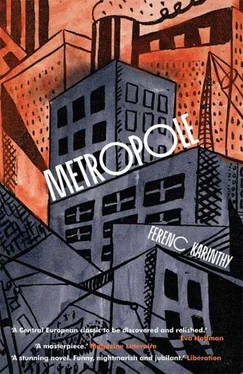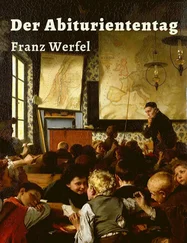Once again he concentrated and began to speculate on what kind of alphabet it might be. The characters were extremely simple, consisting of two or three strokes at most, a little like Old Germanic runes or Ancient Sumerian cuneiform, though it seemed odd and rather ridiculous to compare what he was now looking at with those two long-dead scripts. He also noticed a conspicuous lack of diacritics, that there was no distinction between upper- and lower-case letters, at least none in this book, all letters here being of the same typeface and point size. He soon realised that he had noted over one hundred characters and that he was still discovering more. Sipping at the red wine he wondered what that meant and where the information would lead him? Could it be after all that each character was a word, each word a new character and that was why there were so many of them? Or maybe the characters stood for syllables as in ancient Crete and Cyprus? Or perhaps it was a complex system, like the Ancient Egyptian, comprising various elements: words, shorter phonetic clusters and individual phonetic signs in hieroglyphic form? It occurred to him that it might even be a series of combined phonetic symbols, the kind linguists worked with in order to differentiate between subtle levels of meaning and pronunciation. Or perhaps they simply employed a system that represented this particularly wide range of sounds? Questions, questions, nothing but questions! In the meantime, without noticing it, he had drunk the rest of the bottle. He couldn’t remember the next morning when and how he fell asleep.
He woke to the same even, grey light as on the previous morning. His head was muzzy and confused: he felt claustrophobic, full of guilt for drinking too much. He was angry with himself for having set himself a difficult task and failed. He did not dare think back over the last two days since the whole period seemed to be one of muddle and guilt and the feeling that he couldn’t go on like this. That, in fact, was the one thing he could see with absolute, blinding clarity. He turned on the cold tap in the shower and was soon shuddering and sniffling under the jet of water. This was all a nightmare, nothing but madness and bedlam and he had to wake from it because it couldn’t go on, it simply couldn’t go on!
He dressed, made a sandwich out of what remained from the day before and by the time he had eaten it had a plan of action: he was only amazed that he hadn’t thought of something so simple, so stupid much earlier. If all the hotel employees were idiots with whom one couldn’t exchange a solitary word, if there was no information desk or if it was located in such an obscure place that it couldn’t be found, then he had to find somewhere where there were bound to be foreigners: a tourist or information bureau. A railway station, for example, a long-distance bus terminal, an airport, an airline office, or a harbour or dock if there happened to be one. All he had to do was to find a taxi and somehow explain to the driver where he wanted to go. The rest was up to the driver and once they had arrived, surely there would be someone who could advise him. This appeared so obvious now that he was on the point of packing his bags and never again returning to his room but decided against it since he not only had a bill to settle but they had his passport too and he couldn’t go anywhere without that. He could always throw everything into his bag at short notice.
The blonde in the blue uniform was working the lift again and in his distraction Budai allowed his glance to linger on her. Once again he noticed how lithe and slim she was, how delicately boned and how refined was the structure of her long face. She wasn’t reading this time but staring straight ahead of her with a tired, blank expression. How many times had she made this same up-and-down journey? It was only once they reached the ground floor and the door opened that he detected the merest flash of recognition in her eye. Budai gave her a faint nod and smiled as he stepped out: he was unlikely ever to meet her again. He couldn’t help admitting to himself that he was a mite sorry about that: she was the only thing in the city he would be sorry to leave.
Somehow everything was different this morning, not only in the lift but down in the lobby too. He couldn’t tell at first in what way, what made the difference and why, it was simply something he sensed. The place was just as crowded as before, or pretty well as crowded, but there was less aggression in the air, the movement in the great hall seemed lazier and slower somehow, not quite so frantic, more patient perhaps. Later he noticed that the souvenir shop was closed, its glass cases empty, its front locked away behind metal shutters. The newsagent was closed too, sealed behind a metal grille, and the long bank of exchange counters that used to be busy was now being attended by no more than two or three women, the rest closed. It occurred to him that he had left home on Friday and that he had spent two night here so this must be Sunday and that here too it must be a holiday. It was only at the reception desk that the queues were still the same length as before and he took new fright at their sheer extent, but he waited all the same and handed in his key. Box 921 was still empty but he had stopped expecting to find anything there and would have been surprised if there was something. The exchange counters being empty, he decided to seize the opportunity and try one of the three women who were clearly left to deal with whatever business might come their way on a Sunday. He went over and waited by one of them but she paid him no attention so he knocked on the desk. She ignored that too so he knocked louder until she finally came over. He tried talking to her in various languages but she stared him with such incomprehension and contempt she had clearly taken him for the village idiot. He took out his notebook, drew a train as best as he could, then, underneath it, an aeroplane, and even extended his arms to imitate an aircraft, trying every possible way to convey what he was looking for and where he wanted to get to. The woman was middle-aged, somewhat yellow in complexion and wore her hair in a bun. She answered in a surprisingly sharp manner, apparently angered and offended, with a stream of incomprehensible but clearly rude words that Budai took to mean: ‘what a nuisance, what cheek, one can’t get a bit of peace even on a Sunday’, though it was possible she meant something completely different. He saw it was useless trying to explain so he took the bold step of pulling the largest denomination banknote from his pocket and putting it down on the counter in front of the woman. She carried on grumbling but took the note and went away with it so there was no harm in hoping that she might, after all, help. She quickly returned and subjected him to another annoyed tirade while giving him a few notes and a bit of change — exchanging the large denomination note for some smaller ones — then turned on her heel and left him there.
Even the crowds in the street seemed a little less pushy. The road traffic was no less dense but was moving in a more relaxed way. He worked his way over to the kerbside and waved energetically at passing taxis. But there weren’t many of them and when they did appear they were already occupied, often full to overflowing, some by nine or ten people, men, women, children, old ladies all together. And those few that were empty were proceeding without the available sign showing or in a lane far away from the kerb so it was impossible for them to pull over against the dense traffic. Finally he saw a taxi approach slowly right in front of him, one that was empty and available, but however he shouted and waved, even putting a foot out into the road, the driver did not stop but looked right through him and might even have run him over had he not smartly jumped out of the way. By the time he recovered the taxi was almost lost in the distance… So he fought his way back to the hotel entrance and addressed the fat, fur-collared doorman in various languages, using a range of gestures, attempting to convey the fact that he needed a taxi or a taxi rank, adding that surely there must be one in the vicinity, obstinately, determinedly repeating the word that meant the same everywhere:
Читать дальше












